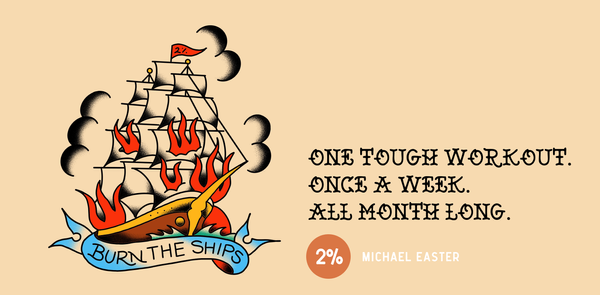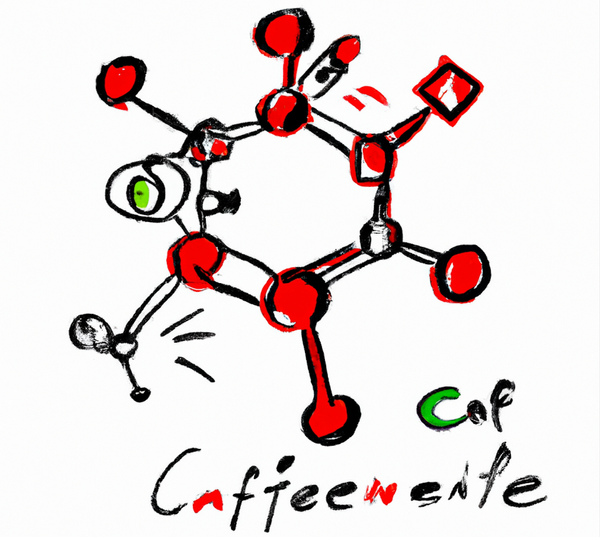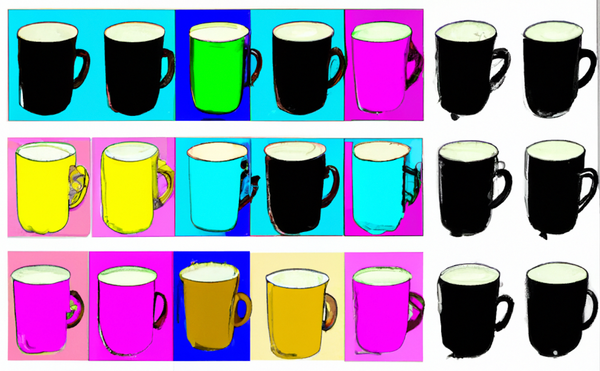To Quit a Bad Habit, Slow it Down
How the tech, gambling, shopping, and food industries use speed to make us miserable, poor, and sick—and how you can fight back.
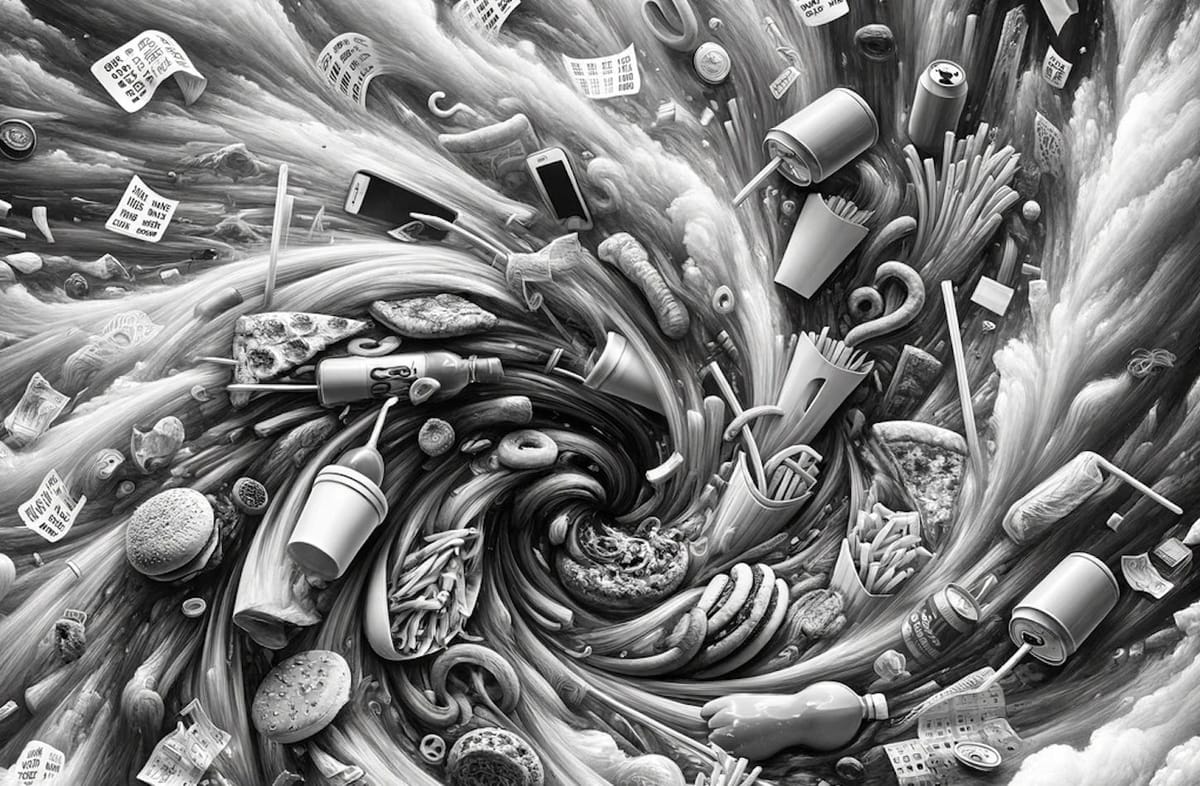
Housekeeping
- Full access to this post and Friday’s Gear Not Stuff post is for Members. Become a Member below to get full access to all the good stuff.
- A reminder to Members: The audio version is at the bottom of the post.
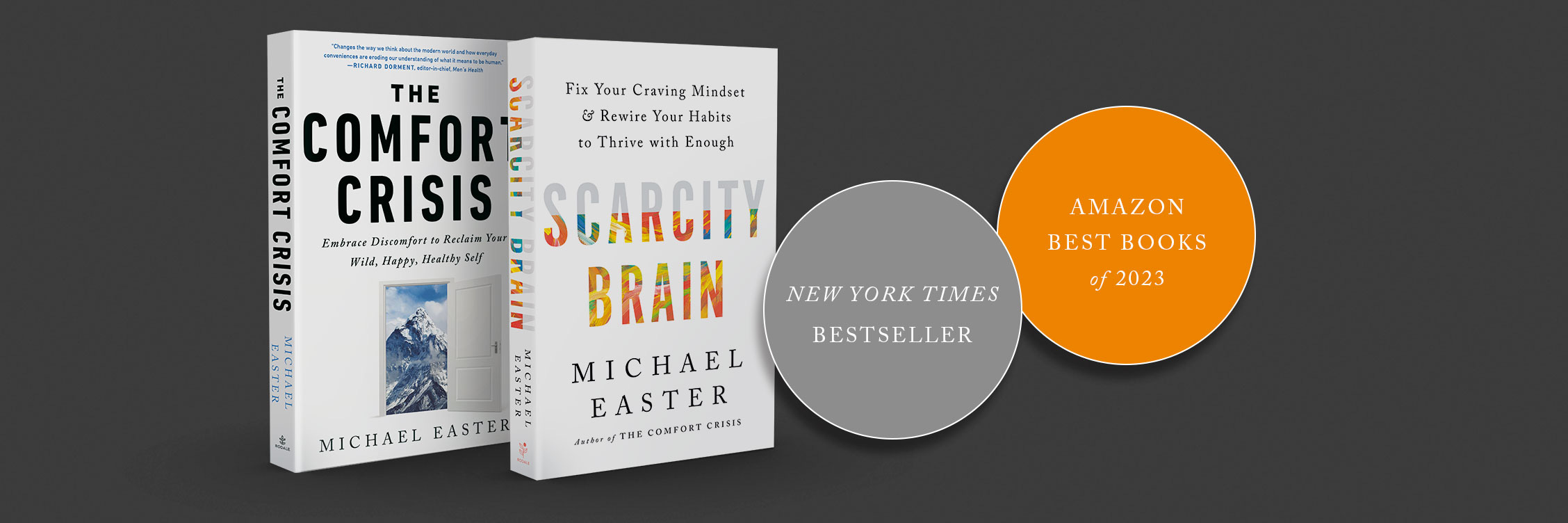
On Monday, we covered how quitting social media impacts mental health. Spoiler alert: It helps.
But it’s not like puppies and rainbows and flowers appear immediately after you delete an app. Quite the opposite.
- When you first quit a habit that provides escape/relief in the short term but harms you in the long run, your life actually gets worse at first. (You at first get snarling dire wolves, thunderclouds, and poison ivy).
- This is because you lose a coping mechanism and go through a sort of withdrawal effect.
- But eventually, your life gets much better. The wolfs turn to puppies. The clouds fade to reveal sunshine and rainbows. The poison ivy gets overtaken by wildflowers.
- That is to say, you have to go through discomfort to get the bigger, better benefit (if only there were a book about the benefits of going through discomfort … lol)
Monday’s post was timed to my appearance on Fox News to comment on the Kids Online Safety Act.
Social media is a big factor in the spike in mental health problems among young people. The Kids Online Safety Act is trying to do something about it.
To get another opinion on the bill from a tech insider, I emailed my friend Oliver Hill.
Oliver co-founded the app Clearspace, which is the best app I’ve found for helping people control screen time (more on it below).
Here’s what Oliver said:
I just read through the bill - I am personally in favor. I actually thought the language was very well designed and precise around what it's asking for. In particular, giving minors the option to easily switch to Input-Transparent Algorithm is super compelling. I'd be in favor of mandating that optionality for everyone—not just minors.
Here’s that part of the bill:

In short: Input-Transparent Algorithm means your personal data can’t be used so the app can feed you exactly what will keep you scrolling … and scrolling … and scrolling.
That’s the thing about living today.
Tech often feeds us exactly what’ll keep us repeating habits—even if those habits hurt us in the long run.
The whole idea of scrolling … scrolling … scrolling got me thinking about a key factor in bad habits today. Why bad habits happen and persist.
We can quickly repeat them.
In short: The quicker you can repeat a behavior, the more likely you are to repeat a behavior. Speed kills.
An example: When casinos removed the clunky handles from slot machines and instead installed spin buttons—which a gambler can keep their finger on and press and repress immediately—gambling rates more doubled. The average slot machine player went from 400 to 900 games an hour.
One review on gambling game speed found: “Games with faster speeds of play encourage more wagers, longer game play, and caused players, particularly problem gamblers, to experience difficulty in ceasing gambling.”
It’s also why apps use infinite scroll—researchers in Germany found that infinite scroll “regretfully elongates social media” sessions.
Today’s post is about how simply slowing down bad habits leads you to do them less.
And if you do bad habits less, your life improves. Sounds like a win to me! So let’s win.
We’ll cover how to slow down:
- Phone use (social media, app binges, doomscrolling)
- Eating (this is a HUGE driver of unwanted weight gain)
- Shopping/Buying too much stuff
- Gambling/Sports betting (a big problem now!)
- Bonus: How to use this to exercise more.
Let’s roll …
Social Media, App Use, Doomscrolling, etc.
In short
The app Clearspace is my favorite way to slow down app use. I’ve listed other tactics below.
The details
A developer named Aza Raskin invented infinite scroll in 2006.
It removed pause from the sites that deployed it. There became no beginning or end to the feed. It just fed you. And fed you. And fed you.
Raskin has expressed regrets for his invention:

So how do you get out? My favorite method is using the app Clearspace (I’ve talked about it on a few podcasts).
I know what you’re thinking, which is the same thing I was thinking when the guys from Clearspace reached out to me after reading one of my posts on screen time. “You’re asking me to use an app to … use another app less?”
But I begrudgingly tried Clearspace—and it worked better than anything I’d used. I was wrong. They were right. Here’s why:
Clearspace leans on the basics of behavioral psychology. It inserts pause so you can’t reflexively pull out your phone and use your app of choice. When you decide to use an app in question, it forces you to pause and become intentional with exactly how much time you want to spend on the app.
To me, Clearspace allows us to find the perfect happy medium of good use but not overuse.
Heads up: We’re partnering with Clearpsace in March for a fun challenge for the 2-Percent community. (Another heads up for full transparency: After I’d talked about Clearspace on multiple podcasts and had great conversations with their team, they asked me to be an advisor for the company.)
Other ways to slow down how easy it is to use your phone:
- Make the phone hard to access. Keep it in another room when you’re trying to focus on work or spend time with others. (Research shows that just the presence of a phone changes our attention and interactions.)
- Delete the apps you overuse. Not using them anymore will suck until it doesn’t. If you need to use them, you can re-install them every time you have to use them, which inserts pause and gets you more intentional about your use.
- Don’t bring your phone everywhere. For example, I often leave it at home when I’m out doing errands. That’s helped me focus more on the world around me and made me much more aware of my surroundings—and how to navigate from point A to B.
- Put your phone on grayscale. Here’s how and why it works.

